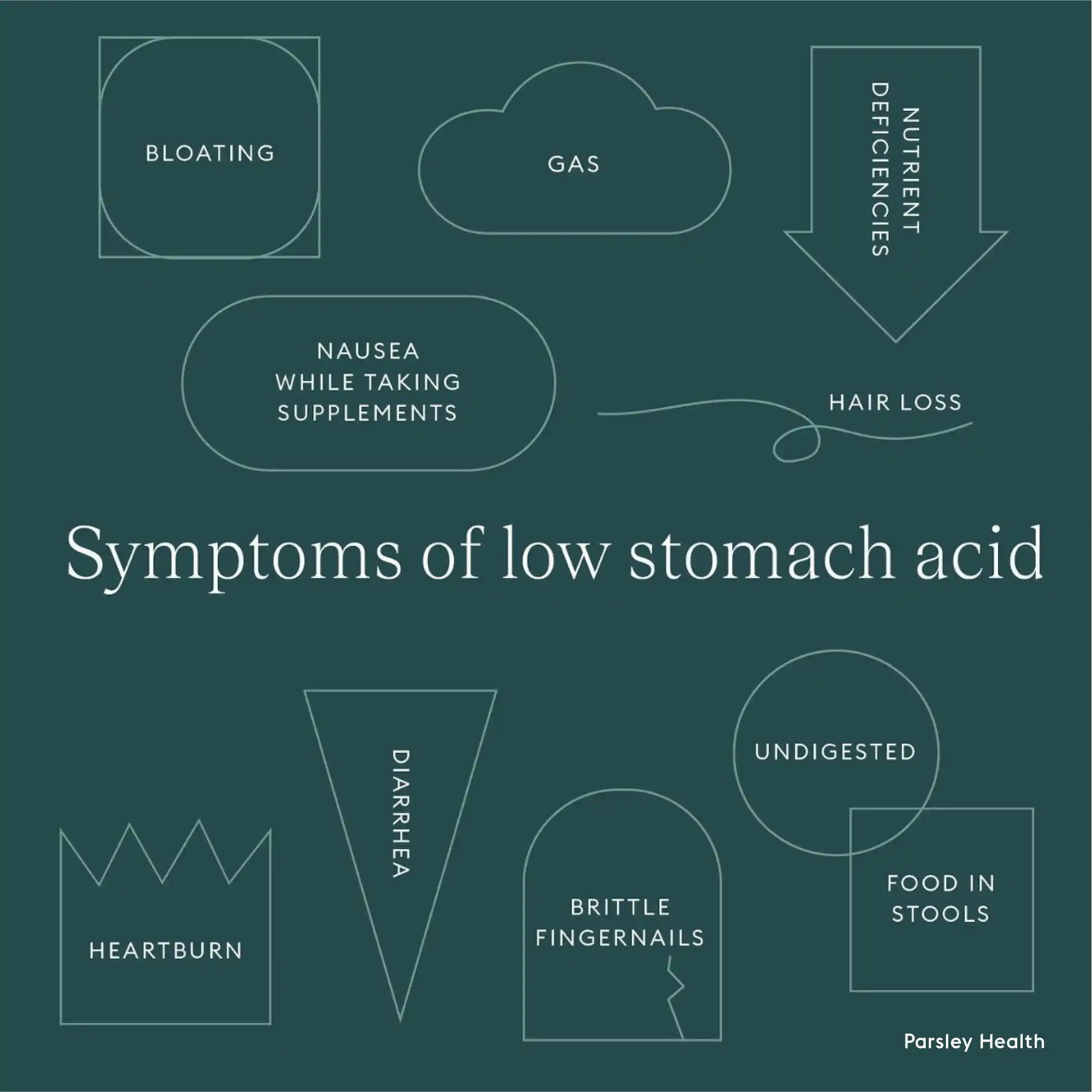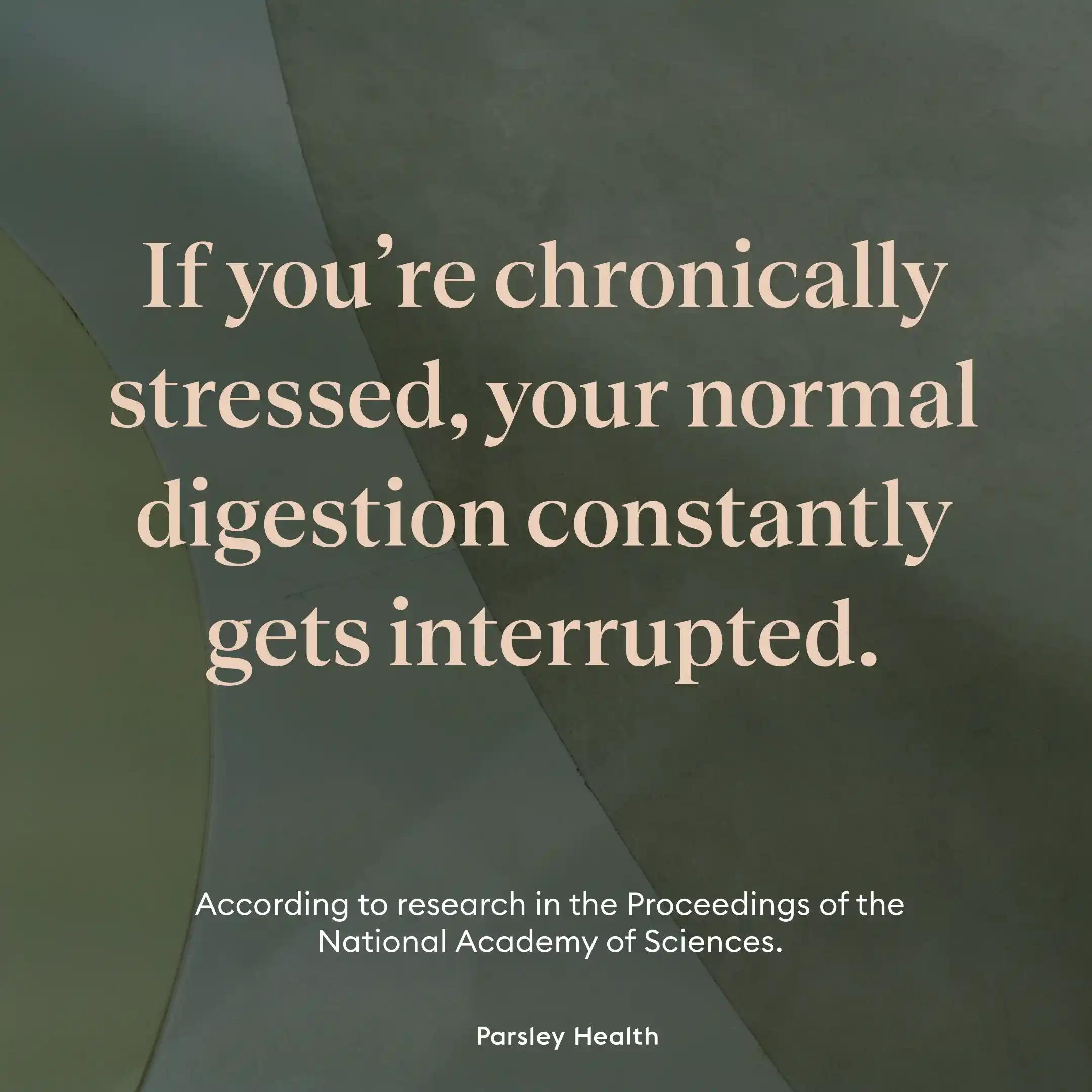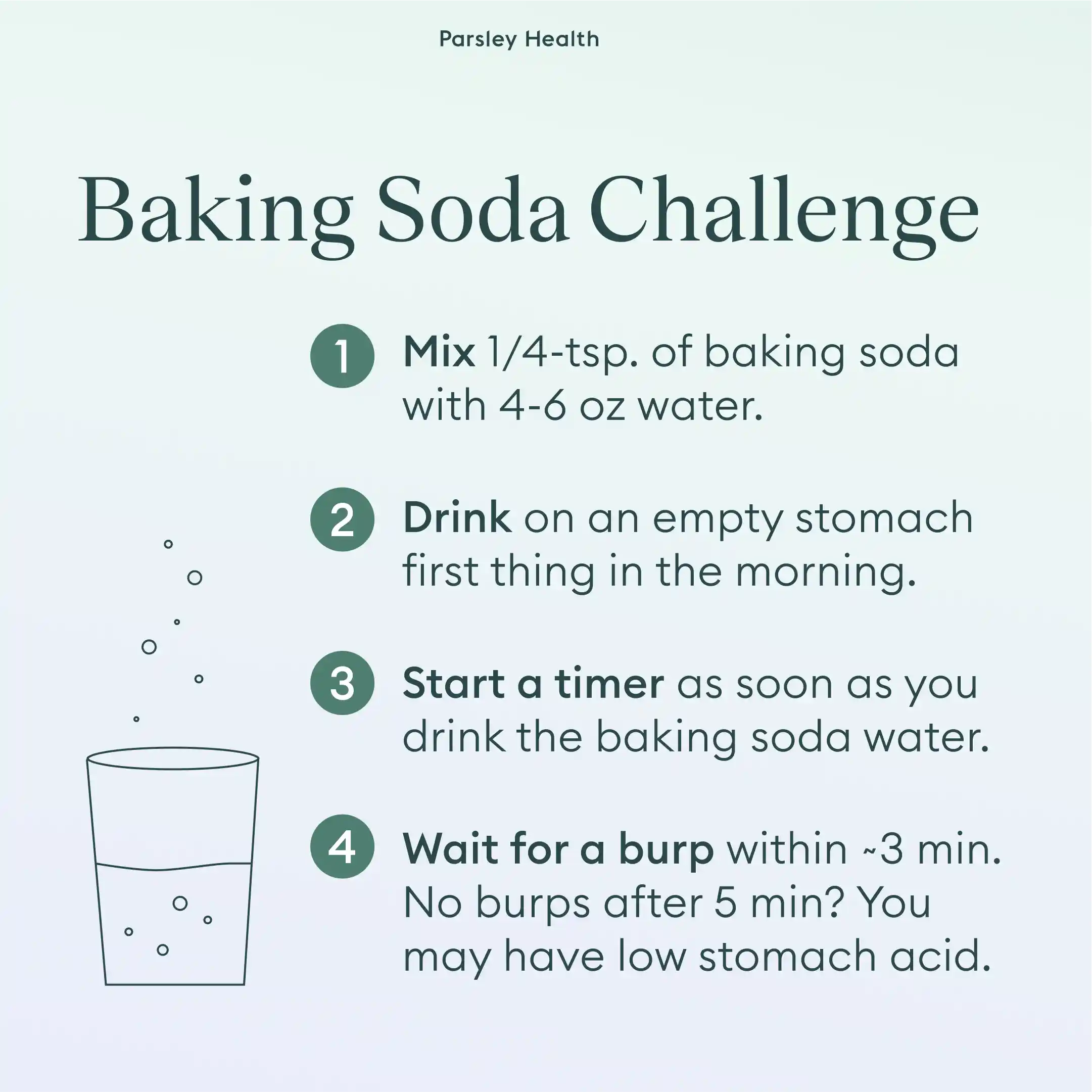Heartburn, bloating, and indigestion are often blamed on too much stomach acid. But in many cases, the opposite problem may be at play. Low stomach acid, also known as hypochlorhydria, can interfere with digestion and contribute to a wide range of digestive and whole-body symptoms.
Stomach acid plays a critical role in breaking down food, absorbing key nutrients, and protecting against harmful bacteria. When the stomach isn’t producing enough acid, digestion can slow down, food may ferment instead of being properly digested, and symptoms like bloating, reflux, fullness after meals, and nutrient deficiencies can develop.
Because the symptoms of low stomach acid often overlap with other digestive conditions, it frequently goes unrecognized. Understanding how stomach acid works and what can happen when levels are too low, is an important step toward identifying the root cause of persistent digestive discomfort and learning how to safely support healthy digestion.
What Are Low Stomach Acid Levels (Hypochlorhydria)?
Low stomach acid, medically known as hypochlorhydria, occurs when the stomach doesn’t produce enough hydrochloric acid to properly break down food and support digestion. While stomach acid often gets a bad reputation, it plays a critical role in keeping the digestive system, and the rest of the body, functioning well.
Adequate stomach acid is essential for:
- Breaking down proteins into absorbable amino acids
- Activating digestive enzymes
- Absorbing key nutrients like iron, vitamin B12, calcium, and magnesium
- Protecting against harmful bacteria and pathogens
When stomach acid levels are too low, digestion can become less efficient. Food may sit in the stomach longer than it should, increasing the likelihood of bloating, gas, and discomfort after meals. Over time, low stomach acid can also affect nutrient absorption and gut health, contributing to symptoms that extend beyond the digestive tract.
Hypochlorhydria is more common than many people realize and is often mistaken for other digestive issues, particularly acid reflux or GERD, because the symptoms can overlap. However, the underlying mechanisms are different, which is why identifying low stomach acid as a potential contributor is an important part of a root-cause approach to digestive health.
Understanding what low stomach acid is, and how it affects the body, helps set the foundation for recognizing symptoms, identifying contributing factors, and exploring safe, evidence-informed ways to support healthy digestion.
Not sure what your symptoms are really telling you?
The Parsley Symptom Index helps connect the dots across your whole body so you can understand patterns, not just isolated symptoms.
What does your stomach acid do?
“Stomach acid has a number of important jobs to play for digestion and overall health,” says Erica Zellner, MS, a health coach and certified nutrition specialist at Parsley Health in Los Angeles.
Hydrochloric acid is one of the main fluids your stomach secretes. Here's what it does.
- Breaks proteins into digestible amino acids (a process known as proteolysis)
- Activates pepsin, the primary enzyme in your stomach
- Stimulates the pancreas to release enzymes that break down food
- Kills potentially harmful bacteria before it reaches our intestines
- Prevents food from backing up into the esophagus, the tube that connects the throat with the stomach
Having healthy levels of stomach acid is crucial so that these key processes can keep working smoothly. Low stomach acid can cause several GI-related and other issues.
What are the symptoms of low stomach acid?
When your stomach acid levels get too low, a condition known as hypochlorhydria, you may notice a variety of symptoms. Not all of them are in your gut.
 These are some of the most common symptoms of low stomach acid to look out for:
These are some of the most common symptoms of low stomach acid to look out for:
The difference between hypochlorhydria and hyperchlorhydria
The terms regarding stomach acid can get confusing. So here's a breakdown.
What causes low stomach acid?
Low stomach acid can be traced back to several causes. “At Parsley Health, the top cause of low stomach acid that we see is stress,” Zellner says.
 Not all doctors will consider stress levels. For this reason, low stomach acid may go undiagnosed.
Not all doctors will consider stress levels. For this reason, low stomach acid may go undiagnosed.
When you’re stressed, your body shifts processes that aren’t critical for survival in the moment—like digestion—to the back burner, Zellner explains.
If you’re chronically stressed, your normal digestion constantly gets interrupted. This can inhibit gastric acid secretion, according to research in the Proceedings of the National Academy of Sciences.
Other common causes of low stomach acid include the following.
- Age (because acid levels may decrease as we get older)
- Long-term use of antacids and proton pump inhibitors (used to treat ulcers and acid reflux)
- Helicobacter pylori infections (a common cause of stomach ulcers)
- Stress
- Autoimmune conditions, like atrophic gastritis
- Stomach surgery
Healing stories from our members
What happens if your stomach acid is too low?
One of the most noticeable effects of low stomach acid is the way it interferes with your ability to digest nutrients, especially protein.
Without enough stomach acid, your body can’t break proteins into digestible amino acids, Zellner says. This can create a protein deficiency, which then leads to a deficiency in vitamin B12, magnesium, and iron. When you don’t get enough of these nutrients, both mild and severe health issues can crop up.
Vitamin B12, for example, needs help from stomach acid to detach from the protein that carries it. If it doesn’t detach, it can’t bind with other substances that carry it through your intestinal wall and into your bloodstream, Zellner explains.
Your body needs both B12 and iron for healthy red blood cells. If you’re extremely low in these nutrients, you may develop anemia, a condition that happens when you lack enough healthy red blood cells. You may feel weak and fatigued, experience constipation, and in more serious cases, numbness and tingling in the hands and feet.
Another common side effect of low stomach acid is heartburn. That slow, painful burn you feel in your chest happens when your stomach acid backflows into your esophagus.
Contrary to popular belief, heartburn isn’t usually caused by an acidic stomach. Instead, that burn is likely connected to GI symptoms caused by low stomach acid.
“Without enough of this helpful stomach acid to break down food," says Mary Stratos, PA-C, "maldigested food gets into the GI tract and GI pathogens overgrow, perpetuating the problem.”
At healthy levels, stomach acid also has disinfecting properties, helping to prevent harmful bacteria from invading the rest of your GI tract. If your stomach acid levels dip, your risk of GI infections goes up.
When hydrochloric acid levels are hampered, Zellner says, leaky gut syndrome can ensue. Leaky gut is when the gut barrier is compromised and allows toxins to enter the bloodstream.
This can make you more susceptible to autoimmunity and skin issues, she adds. Low stomach acid has links to numerous conditions, including acne and psoriasis.
How do you know if you have low stomach acid?
If you recognize any of the symptoms of low stomach acid, you can try an easy at-home test.
 Parsley Health providers often recommend what is known as a baking soda challenge. “We are looking to see how long it takes for you to burp,” Zellner says.
Parsley Health providers often recommend what is known as a baking soda challenge. “We are looking to see how long it takes for you to burp,” Zellner says.
How to do the baking soda challenge
- Mix a quarter-teaspoon of baking soda with 4 to 6 ounces of water.
- Drink on an empty stomach first thing in the morning.
- Start a timer as soon as you drink the baking soda water.
- Note the time it takes to naturally burp.
“If you have sufficient levels of stomach acid, the baking soda will be converted into carbon dioxide gas, which should cause belching about three minutes after drinking,” Zellner explains. If you haven’t belched within five minutes, you may have low stomach acid levels.
A Parsley Health provider can help you interpret your results and come up with a treatment plan that’s personalized to you.
If you think you have low stomach acid, make an appointment with a doctor. Doctors at Parsley Health take an in-depth history of your health and symptoms and may test your stomach pH (or acidity) to confirm the diagnosis.
They may also recommend advanced testing to look for other digestive issues or nutrient deficiencies. From there, you can discuss treatment options.
Medical tests to diagnose low stomach acid
Medical tests to diagnose hypochlorhydria may include the following, which all involved swallowing a pill or capsule that helps your doctor determine your stomach's pH level.
- The Heidelberg pH test (the gold standard for measuring stomach acid levels)
- The SmartPill test
- The gastric string test
You may also receive a referal to a GI specialist for ambulatory pH monitoring. This is the gold standard test for GERD. It provides information on your esophageal acid exposure.
Parsley Health offers physician-led functional medicine care, advanced lab programs, and flexible ways to get started, all designed to help you feel better over time.
The prognosis of low stomach acid
Low stomach acid is treatable. Which treatments are best for you will depend on your underlying causes. Work with your doctor or provider to understand why you have hypochlorhydria and the best course of action.
Low Stomach Acid Treatment Options
Parsley doctors and providers use a variety of approaches to get your stomach acid back to healthy levels. Each plan is personalized to the member, incorporating their health goals and preferences.
Here are just a few ways your care team may work with you to improve stomach acid production.
Eat your (bitter) greens
“My favorite first step to treat low stomach acid is to use bitter foods and digestive bitters,” Zellner says.
Bitter flavors excite the digestive system and alert the body that a complex food is being consumed. “It’s like an alarm clock for the digestive system,” Zellner says. The alarm signals the body to secrete stomach acid, digestive enzymes, and bile.
Try to incorporate more wild plants into your diet, as many of these feature a rich, bitter flavor.
- spinach
- kale
- arugula
- dandelion
You can also try digestive bitters. Digestive bitters are a liquid derived from bitter plants that you can take orally before meals to stimulate your digestive system, Zellner says.
Introduce some acid
Supplementing with raw apple cider vinegar, a food with acidic properties, may also improve acid levels in the stomach by lowering the pH.
“Try diluting a small amount of apple cider vinegar with water and drinking at least five minutes before meals,” Zellner says.
Never drink undiluted apple cider vinegar, as it can damage the enamel on your teeth, she adds.
Cut down on processed foods
Cleaning up your diet is another great way to improve your stomach acid. Limit processed foods and added sugars. These can cause inflammation in your stomach, lower acid, and even trigger acid reflux, Zellner says.
Meanwhile, a diet rich in fruits and vegetables may lower inflammation and boost stomach acid.
Chew slowly
Digestion begins in the brain via what is known as the cranial phase of digestion. The thought and smell of food start the flow of salivary enzymes in your mouth. The salivary enzymes start their work the moment you take a bite.
“Chewing thoroughly allows enough contact time for these enzymes to start breaking down your food,” Zellner says. It also helps prime your body to make adequate stomach acid.
Find calm
Digestive function and mental well-being are closely linked. Therefore, keeping stress in check can play a pivotal role in restoring your gut health.
Frequently Asked Questions About Low Stomach Acid Levels (Hypochlorhydria):
How do you fix low stomach acid?
If you have low stomach acid, you'll first need to work with your doctor to determine the underlying cause. Then your doctor or provider can help you find the best treatments to improve your stomach acid production.
What are the symptoms of low stomach acid?
Symptoms of low stomach acid include a host of GI issues, from constipation and diarrhea to bloating and gas. Nutrient deficiencies and skin issues, like acne, may also result.
How do I know if my symptoms are from low or high stomach acid?
Your doctor or provider can walk you through a baking soda challenge test. They can also help you interpret your results.
What foods neutralize stomach acid?
Several foods can help neutralize stomach acid, including bananas, yogurt, almonds, green leafy vegetables, ginger, licorice root, and more.
How do I treat my acid reflux?
To treat acid reflux effectively, you first need to determine what's causing it. Talk to your doctor or provider about your symptoms.
Takeaway
Low stomach acid, also called hypochlorhydria, can lead to several uncomfortable GI issues, including gas and bloating.
To find out if low stomach acid is a culprit, Parsley Health can help. Your provider may recommend tests to assess whether you have low stomach acid.
Then they can work with you to determine underlying causes and treat them to help alleviate your symptoms.



 These are some of the most common symptoms of low stomach acid to look out for:
These are some of the most common symptoms of low stomach acid to look out for: Not all doctors will consider stress levels. For this reason, low stomach acid may go undiagnosed.
Not all doctors will consider stress levels. For this reason, low stomach acid may go undiagnosed.




